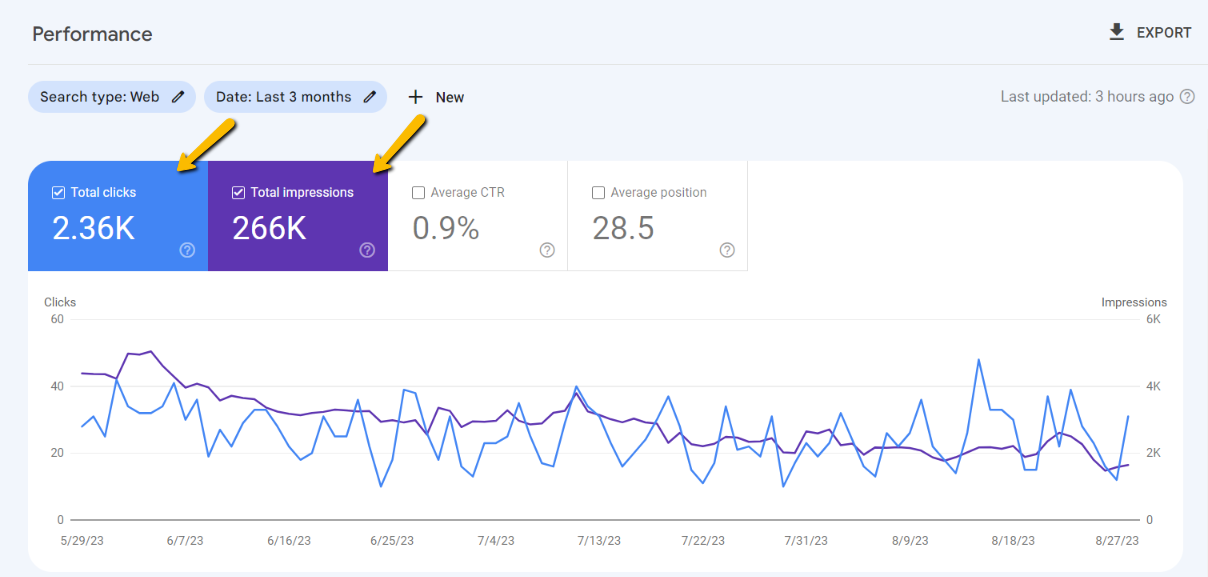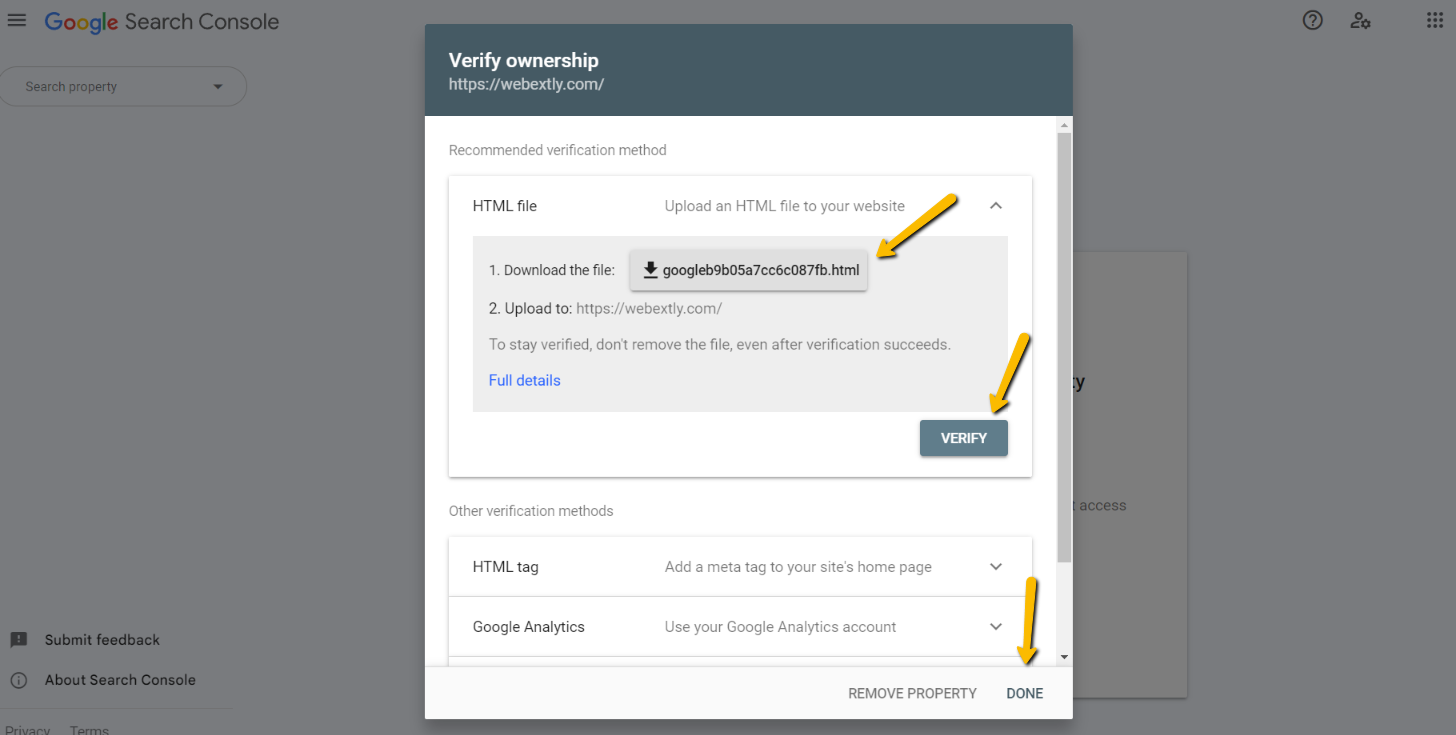What is Google Search Console?
Google Search Console is a free web service provided by Google that allows website owners, webmasters, and SEO professionals to monitor, manage, and optimize the presence of their websites in Google’s search results. Formerly known as Google Webmaster Tools, it was rebranded as Google Search Console in 2015.
This tool provides valuable insights and data about how Google’s search engine interacts with a website. It helps website owners understand how their site is performing in terms of search visibility, and it offers various tools and reports to improve the website’s search engine optimization (SEO) efforts. Some of the key features of Google Search Console include:
- Performance Reports: These reports provide information about how often your site appears in Google search results, the number of clicks received, the click-through rate (CTR), and the average position of your site’s pages. This data helps you evaluate the effectiveness of your SEO efforts.
- URL Inspection: This feature allows you to see how Google’s search engine sees a specific URL on your website. You can check if a particular page is indexed, view any indexing errors, and understand how Googlebot (Google’s web crawling bot) renders your page.
- Index Coverage: This report provides insights into which of your site’s pages are indexed by Google and whether there are any issues that might be preventing certain pages from being indexed.
- Sitemaps: You can submit a sitemap of your website to Google Search Console, which helps Google understand the structure of your site and index its pages more efficiently.
- Mobile Usability: This report highlights any mobile usability issues on your site, helping you ensure that your website is user-friendly on various mobile devices.
- Structured Data: Google Search Console allows you to check if your site is using structured data markup correctly. Structured data helps search engines understand the content on your pages better and can lead to enhanced search result features like rich snippets.
- Security Issues: The tool can alert you to any security issues, such as malware or hacking attempts, that Google has detected on your site.
- Manual Actions: If Google’s team identifies any violations of its webmaster guidelines on your site, it will provide details about the issue and steps to rectify it.
How can you make the most of Google Search Console’s features?
Using Google Search Console to its fullest extent involves utilizing its various features and reports to improve your website’s search performance, identify issues, and optimize your content for better visibility in search results. Here’s a step-by-step guide to making the most of Google Search Console:
- Verify Your Website: To start using Google Search Console, you need to verify ownership of your website. This can be done through various methods such as adding an HTML tag to your website’s code, uploading a verification file, or using Google Analytics.
- Submit Sitemap: Once verified, submit your website’s sitemap to Google Search Console. A sitemap is a file that lists all the pages on your website, helping Google crawl and index your content more efficiently.
- Monitor Performance Reports: Regularly check the Performance reports to understand how your site is performing in Google search results. Monitor metrics like clicks, impressions, click-through rate (CTR), and average position. Use this data to identify trends and areas for improvement.
- Identify Top Performing Pages: Analyze the Performance reports to identify pages that receive the most clicks and impressions. Determine what makes these pages successful and apply those insights to other parts of your website.
- Optimize Content: Use the queries report in the Performance section to see what search queries are driving traffic to your site. Identify high-impression, low-CTR queries and consider optimizing your content to improve your CTR.
- Fix Index Coverage Issues: Regularly check the Index Coverage report to identify any issues with pages that are not being indexed or have indexing errors. Address these issues to ensure all your important pages are indexed.
- Check Mobile Usability: Use the Mobile Usability report to identify and fix any mobile-related issues on your site. Google’s mobile-first indexing means that mobile usability is crucial for search rankings.
- Monitor Manual Actions: Keep an eye on the Manual Actions report to see if Google has identified any violations of its guidelines on your site. If you receive a manual action, follow Google’s guidance to rectify the issues.
- Test and Submit Changes: Use the URL Inspection tool to test how Googlebot renders specific pages on your site. This helps you ensure that your content is being properly understood by the search engine.
- Use Structured Data: Implement structured data markup on your site to enhance search results with rich snippets. Use the Rich Results reports to see how Google is displaying your structured data in search results.
- Set Up Alerts: Configure email alerts in Google Search Console to receive notifications about critical issues, such as indexing errors or security concerns, so you can address them promptly.
- Regular Audits: Periodically conduct website audits using Google Search Console to catch new issues, monitor changes in performance, and stay up-to-date with any updates to the platform.
- Stay Informed: Google Search Console offers guides, documentation, and announcements that provide insights into best practices and changes in search algorithms. Stay informed to adapt your strategies accordingly.
Remember that search engine optimization is an ongoing process, and Google Search Console is a valuable tool to assist you in continuously improving your website’s search performance. Regularly reviewing its features and reports, taking action on its recommendations, and staying updated with SEO trends will help you make the most of Google Search Console.





